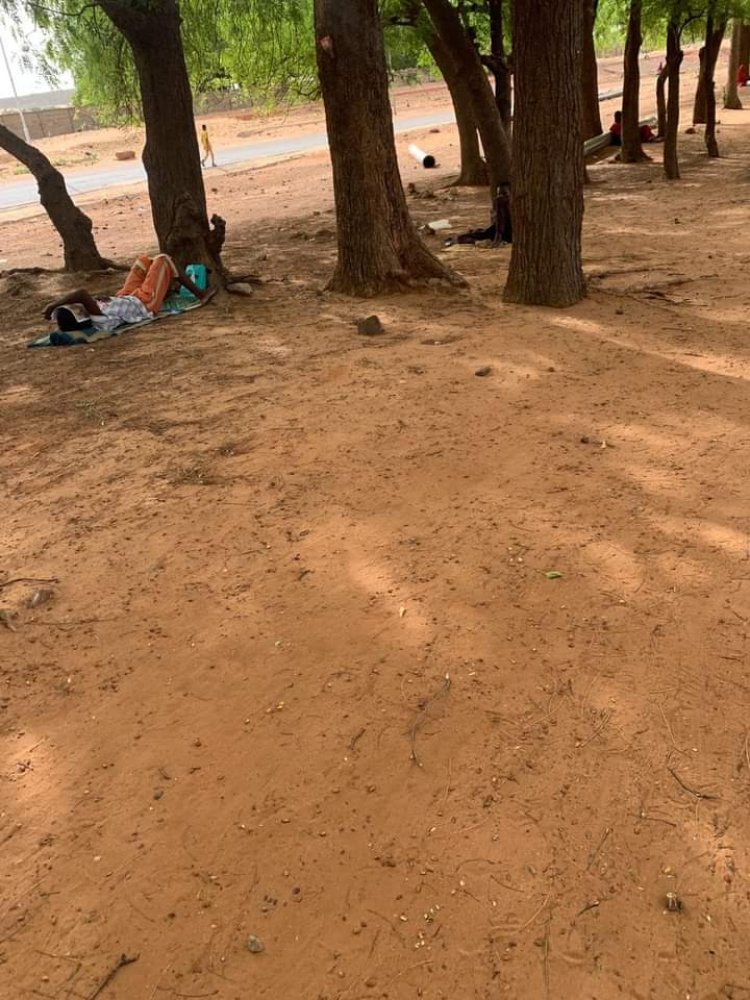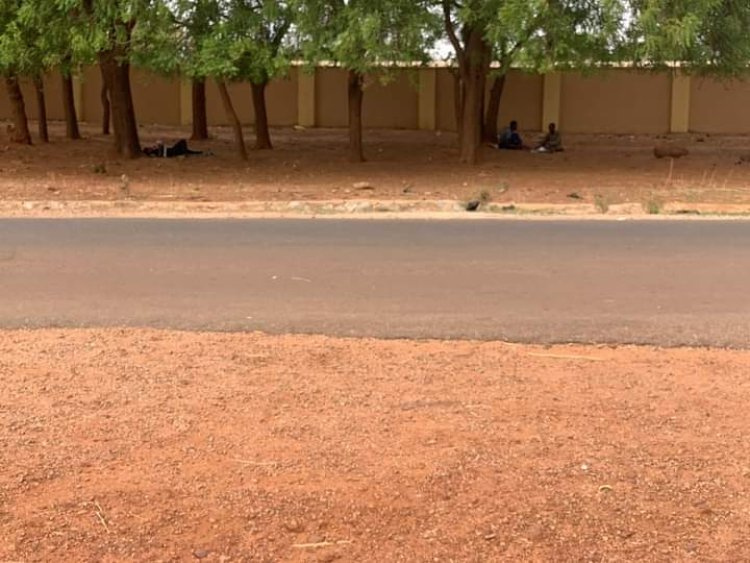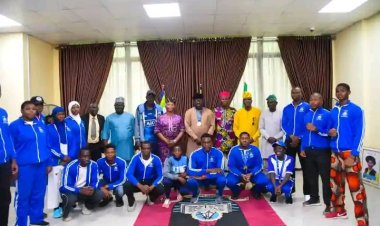UDUS Students Turn to Outdoor Reading Amidst Unrelenting Heatwave
Amidst an unforgiving heatwave, students of Usman Danfodiyo University, Sokoto (UDUS), have found themselves driven out of the oppressive confines of their classrooms, opting instead for the relative comfort of outdoor reading spaces under the trees.

Amidst an unforgiving heatwave, students of Usman Danfodiyo University, Sokoto (UDUS), have found themselves driven out of the oppressive confines of their classrooms, opting instead for the relative comfort of outdoor reading spaces under the trees.
Fatimah Lukman [Pseudonym] recounts her struggle with the unbearable classroom conditions, which began two months ago. Despite her best efforts to concentrate, the stifling heat made learning indoors an insurmountable challenge. "I later quit going to class and started following my friends to the bush to read," she shared.
This trend is not unique to Fatimah. A significant number of UDUS students have forsaken the traditional lecture halls for the shaded areas behind school hostels, driven by the relentless heat and erratic electricity supply.

RECOMMENDED: Federal College of Education, Zaria, Announces New Key Appointments
Seeking Proximity and a Cool Atmosphere
On a typical Saturday afternoon, beneath the blazing sun of the Caliphate, students can be found studying under the canopy of trees, directly across from the school stadium. Among them, Ishaku Augustine, a 100-level Nursing student, finds solace and motivation in the outdoor environment. "The classrooms are not only hot but noisy. A lot of people that go to class don't go there to read, and such distraction is not good for people that are in class to read," he explained.
For Odunsanwo Hamzah, another student, the primary motivator is the unbearable heat. "The atmosphere in Sokoto is not friendly lately, and as you can see, the class will be hot considering the population reading there," Hamzah noted. "Even when there is electricity, the breeze from the fan is always hot. Sitting under the tree is the only alternative for most of us."
Similarly, Sarah Samson, a master's student in Parasitology, appreciates the cool atmosphere and the proximity of the shelterbelt to her hostel, which makes it a preferable study spot compared to the classroom.
The Impact of the Heatwave
The heatwave in Sokoto, with temperatures ranging from 43.0 to 44.8 degrees Celsius, has significant health implications. The extreme heat can lead to conditions such as meningitis, rashes, and itching, necessitating frequent hospital visits. In such an environment, staying in poorly ventilated classrooms is inadvisable, making the outdoor reading spots a viable alternative.

Nigeria's current heatwave, driven by both natural and anthropogenic factors, poses serious risks to health and well-being. The soaring temperatures exacerbate discomfort and have far-reaching implications, demanding urgent attention.
SEE ALSO: Nigeria’s First Professor of Cyber Security Delivers Combined Convocation Lecture at HAFEP
Dehydration as a Heat Management Strategy
Dr. Bala Sokoto, a health worker at Usmanu Danfodiyo University Sokoto clinic, advises students to stay hydrated as a strategy to combat the heat. "Avoiding a less conducive class is highly encouraged. Reading under the tree can be better but not the best," he said.
As the heatwave continues, the students of UDUS have adapted by finding innovative ways to continue their studies, demonstrating resilience in the face of challenging conditions.





